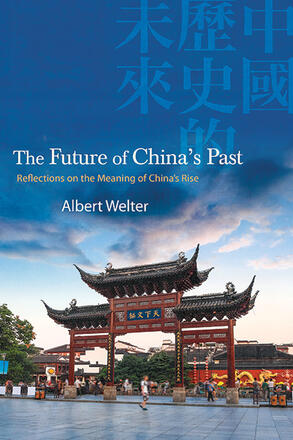
The Future of China's Past
Reflections on the Meaning of China’s Rise
Alternative formats available from:
Addresses the question of China's rise and what it portends for the future.
Description
The Future of China's Past examines how China's traditional culture is being reinvented and manipulated for political purposes. Like no time before in its recent history, and certainly at no time in the history of the People's Republic, China is being shaped in terms of its past, but which past—Confucianism, Legalism, Daoism, Buddhism—or combination of pasts is being held up as the model? Given its growing economic, political, and cultural significance, it is incumbent upon us to take China's rise seriously, yet perspectives involving modern and contemporary geopolitical and intrastate dynamics are insufficient, on their own, for understanding China's rise, and the same holds true for economic analyses, however pertinent. Instead, this book looks at current engagements with models of China's past, introducing the four traditional lenses of Chinese thought and reflecting on their potential relevance for China's—and the world's—future.
Albert Welter is Professor and Head of the Department of East Asian Studies at the University of Arizona. His previous books include Religion, Culture, and the Public Sphere in China and Japan, co-edited with Jeffrey Newmark, and A Tale of Two Stūpas: Diverging Paths in the Revival of Buddhism in Hangzhou China.
Reviews
"Anyone interested in the future of the planet should read this book. Welter dives deeply into four Chinese religio-political traditions: Confucianism, Legalism, Daoism, and Buddhism. Informed by the longue durée view, he invites readers to think beyond the Orientalist fantasy of a Confucian (peaceful) China or the dramatic illusion of a 'clash of cultures.' Taking a less-traveled path, Welter leads readers to explore two central inquiries: (1) which of China's pasts could play a key role in China's rise; and (2) how and why the dominance of each tradition could shape the future of the planet." — Jessica Xiaomin Zu, University of Southern California